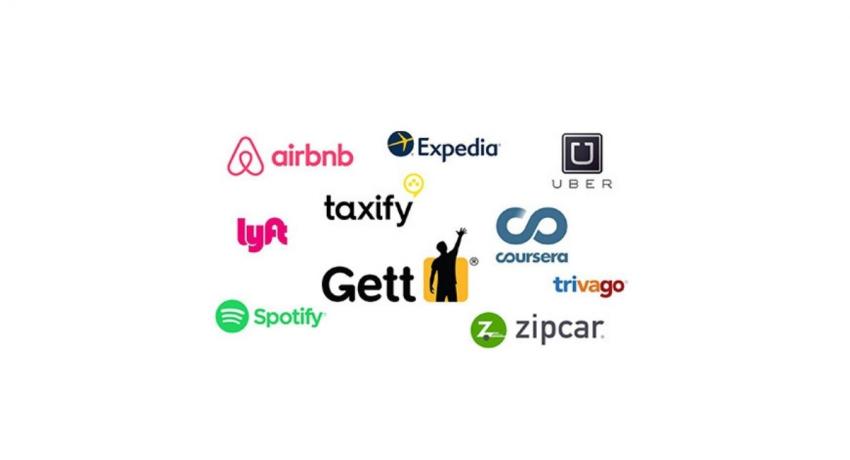
The Gig Economy has emerged as a topic of discussion and I understand that Intuit has posited that 40% of US workers will be independent contractors by 2020. That is 3 years away!
What is a gig employee? Uber, Lyft, and Airbnb all utilize gig employees as the delivery mechanism for their apps. While they are all clear that they are just an App and don’t employ the gig employees, governments and employer bodies are analyzing the risks and reports are indicating that they are significant.
As a contract worker, which is how Uber defines their drivers, there is not an employer/employee contract in place. While Uber, and other similar companies, create the mechanism for people to deliver a service, they consider themselves brokers, for want of a better word, and not employers.
The UK is looking into the situation and considering legal structures . The concerns are particularly when people have a single source of income, although they are not formally employed. This leaves them in a situation where they have none of the protection and benefits that a full time employee has, while effectively working for a single entity.
Matthew Taylor, head of the Royal Society of the Arts, (see link below) told the BBC that the key criterion for deciding whether somebody is an employee is whether the company controls and supervises the employee.
The situation is that these people are not employed so they typically do not contribute to UIF (Unemployment Insurance Fund) or the equivalent in other places in the world.
There are no benefits, so no pension or provident funds, no paid leave of any kind. The benefit is flexibility and income producing work with a fair amount of independence in the ability to choose where and when you work.
Is it a good or bad thing for the world economy and the workforce? Either way, it is our new reality.
Entrepreneurs, as always, are finding ways to create parallel businesses feeding off the disruptive business models. Many Uber drivers have two “bosses” – Uber and the vehicle owner and Airbnb is the same. I have started to use Airbnb regularly and, in most cases, am dealing with a letting agent who has a number of Airbnb places in her portfolio.
There are conversations happening in traditional staff hiring businesses where the business managers are trying to find ways to change their current model to work off the gig economy. They see it as reducing risk and creating a more flexible environment where former employees become agile owners of their own small business. This can be very effective in the personal services industry eg hairdressers and beauticians who will come to your home or office using an Uber style app.
Interestingly, while the perception is that it is the millennials who are engaging in this economy, it is also enabling older workers to extend their work lives, utilizing their deep experience while retaining flexibility and control over their time.
While the App Developers have branded themselves as an app enabling connections between the supplier/service deliverer and user, it increasingly seems that the market perception is that the owner of the App is responsible for much more than acting as a conduit.
The conversation becomes interesting from the HR as well as the statutory angle. Human Resource practitioners are voluble around the issues facing them in terms of time spent in support of employees who have many challenges both in the workplace and at home. This lack is strongly felt by the contract workers I have spoken to.
It is also important to note that gig workers /agile workers / portfolio careerists have to accept greater responsibility for their own career paths than the formally employed.
· Training tends to be specific to the task and very little is given
· Performance management and enhancement is not offered in most cases
· There are typically no recognition or reward programs for great performance although if you look at companies like Tupperware or Avon they have those in place
Flexible, contract work has always been around and the wish to work flexibly at the higher end of the skill scale has been very successful in many different industries.
The disruption is with us. How we handle it is up for discussion. Legislators everywhere are looking at the impact very seriously.
Interesting times ahead!
Links, References and Notes
Accsys provides people management solutions ie Payroll, Human Resources (HR), Time and Attendance as well as Access Control/Visitor Management.
The company develops, implements, trains and services our solutions. We provide readers, turnstiles, booms and CCTV.
We run both on premise and in the cloud, as well as mobile options for ESS. Recruitment, online education and Business Process Outsourcing (BPO) are part of our offering, too.
“Unions cannot collectively bargain with an algorithm, they can’t appeal to a platform, and they can’t negotiate with an equation.”
Dawn Gearhart from Teamsters Local 117
https://www.technologyreview.com/s/608265/new-report-suggests-a-way-to-treat-gig-economy-workers-fairly/
www.accsys.co.za
email: [email protected]
twitter: @TerylSchroenn
Note: Thank you for reading Teryl@Work. Should you wish to use any of the material, please acknowledge this blog as the source

